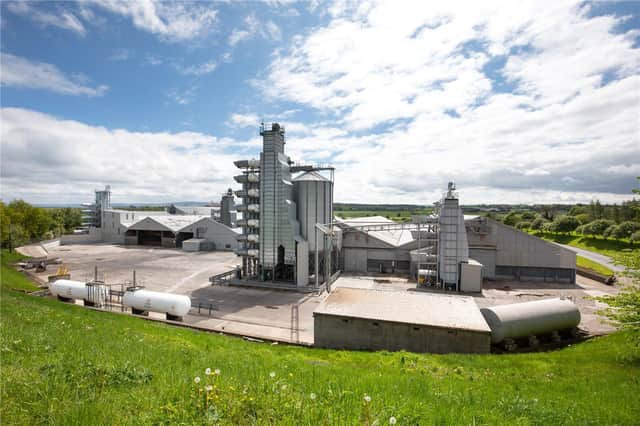Grain merchant collapse adds to farming’s woes - Brian Henderson


On top of the Brexit, new agricultural policy, tackling the climate emergency and the general lack of farm profitability, concentration of power in the supply chain has been a growing worry in the sector.
And the recent shock news that one of the countries long-established grain merchants, Alexander Inglis and Son, had gone into administration has only added to the latter of these problems, with major restructuring across the grain trade seeing the marketing of malting barley in Scotland concentrated into ever fewer hands.
Advertisement
Hide AdAdvertisement
Hide AdThe ramifications for those now caught up in the complicated process of registering as a creditor to recoup some of their losses from the Inglis collapse are immediate and obvious.
And the complex relationship which often exists between farmers and the bodies with which they trade – which can cover everything from signed and dated contracts through verbal agreements and ‘understandings’, often involving delayed payments and even barter deals - means that there is still no clear indication of the level of losses across the industry - but there can be little doubt that they will be substantial.
With the auditors deciding to wind up the company rather than trying to sell it as a going concern and selling the assets, including both quantities of grain and the facilities in which they are stored it’s also more than likely that it could be some considerable time before any unsecured creditors receive their share of the funds realised.
For those who believe that their grain is still in store, it would appear that unless a retention of title clause was included in the contract and that goods are clearly and distinctly identifiable, through labelling or suchlike, there will be little chance of reclaiming physical grain supplied.
Those holding malting barley contracts for this year’s harvest have also been left in limbo – and while the general understanding is that these will not be called in, growers have been advised to contact the administrators to have this confirmed before being tempted to take advantage of the upturn being offered on some contracts.
The effect on some of the individual businesses, both farming and other merchants, caught up in the fallout is likely to be significant and should not be underestimated – but there are considerable implications for Scotland’s wider arable sector as well.
For the Scottish grain trade, which has gone through spells of significant consolidation in the past would appear to be going through yet another at the present moment – with the collapse of Inglis and the purchase of WN Lindsay by Simpsons Malt last year spelling a considerable shrinkage in the number of major buyers operating in Scotland’s grain market.
And any reduction in the level of competition amongst buyers at a time when the whole of Scottish agriculture faces the host of major changes outlined earlier simply can’t be viewed as good news.
Advertisement
Hide AdAdvertisement
Hide AdNFU Scotland has realised the whole issue is a stark indication of the magnitude of the challenges facing growers in the arable sector particularly in the south of Scotland – and has suggested that the time might be right for arable farmers to think about the future and to explore if there was an opportunity for increased farmer co-operation and collaboration to address the imbalance in power within supply chains.
Inviting farmers to attend a Zoom meeting which takes place today, union president, Martin Kennedy said:
“Big challenges need big solutions, and one solution is farmers coming together bound by a common purpose.
“Cooperatives are one potential opportunity for members to consider following the administration of Alexander Inglis and Son. We want to give members the opportunity to find out more and ask questions to those involved in existing co-ops.”
And while farming co-operative ventures into the grain trade in Scotland have had mixed fortunes over the years, there are a number of outfits which have proved to be highly successful across the years – and the opportunity to buy existing stores and facilities are few and far between.
There might not be long to mull the idea over though, with selling agents Savills indicating that there has been sufficient interest in the stores to set a closing date for offers as soon as the end of next week.
Comments
Want to join the conversation? Please or to comment on this article.